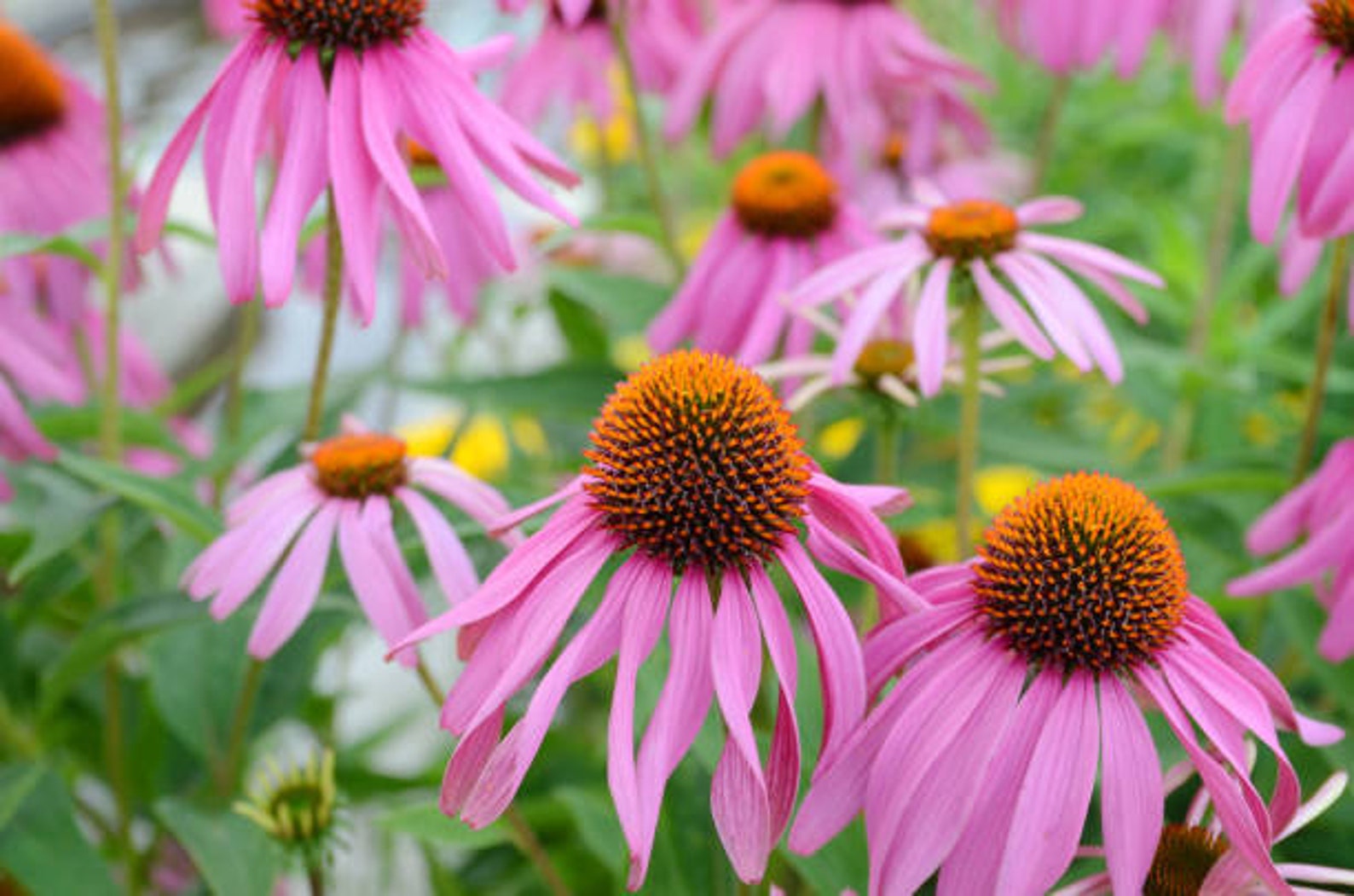

Some may grow for a year or two and then fizzle out, though enriched, well-drained soil can help them last longer. However, not all forms of purple coneflower perform well in every part of Florida. Known scientifically as echinacea, the plants can grow to a three-foot clump, and the daisy-like flowers bloom throughout spring and summer on tall flower stalks. Some choose improved cultivars like 'Hot Papaya', 'Mac 'n' Cheese', or 'Raspberry Truffle' because of their shocking colors, while others plant the native purple species in order to attract and feed butterflies. In vitro antiviral activity of Echinaforce, an Echinacea purpurea preparation, against common cold coronavirus 229E and highly pathogenic MERS-CoV and SARS-CoV.Many gardeners are brightening their landscapes with purple coneflower, a beautiful perennial that isn't always purple. Evaluation of echinacea for the prevention and treatment of the common cold: A meta-analysis. Also known as eastern purple coneflower, hedge coneflower, or black Sampson. Phenetic comparison of seven Echinacea species based on immunomodulatory characteristics. Latin name: Echinacea purpurea PowWow Wild Berry Common name: Purple Coneflower Flowers: Large, deep rose-purple flowers in a floriferous bloom from late. Efficacy of an extract of North American ginseng containing poly-furanosyl-pyranosyl-saccharides for preventing upper respiratory tract infections: A randomized controlled trial. This article reviews the benefits, uses, side effects and dosage of echinacea. Echinacea for preventing and treating the common cold. Echinacea is a popular herbal remedy, primarily known for its potential to prevent or treat the common cold. Echinacea - a source of potent antivirals for respiratory virus infections. Coronavirus research: Could echinacea act as a prophylaxis against the SARS-Cov-2 coronavirus? More research warranted (2020).raw materials and finished products by high-performance liquid chromatography with ultraviolet detection: Single-laboratory validation matrix extension. Determination of major phenolic compounds in Echinacea spp. Echinacea for treating the common cold: A randomized trial. You can learn more about how we ensure our content is accurate and current by reading our editorial policy.
:max_bytes(150000):strip_icc()/best-perennial-herbs-for-your-garden-1762024-01-f0c99c1257a94e379e2e7b40221e7f53.jpg)

We link primary sources - including studies, scientific references, and statistics - within each article and also list them in the resources section at the bottom of our articles. Medical News Today has strict sourcing guidelines and draws only from peer-reviewed studies, academic research institutions, and medical journals and associations. There is no evidence that Echinacea or any other ingredient in herbal medicine can prevent or cure severe respiratory illnesses, including COVID-19. The scientists who issued the warning also caution that the product could be dangerous to people with autoimmune conditions. The study has also not been peer-reviewed, and it does not, by any means, show that Echinacea can help cure COVID-19. Moreover, the researchers had only tested the product on cell lines and virus particles, not people. However, other scientists warn that this limited investigation did not look into the effect of the product on the virus that causes coronavirus disease 19 (COVID-19). Meanwhile, a study from 2020 indicates that a commercial product containing Echinacea extract could help prevent severe respiratory diseases caused by coronaviruses. However, they point out that the lack of standardization among Echinacea products may keep people from finding effective remedies. If you notice any unusual symptoms, the person has underlying health conditions or is taking medications. In 2011, the authors of a review found that some extracts of Echinacea may help treat viral respiratory infections. Coneflowers are considered safe to consume for humans. Researchers have yet to prove that Echinacea can reduce the impact of a cold, and there is very little evidence that it can help with other illnesses.


 0 kommentar(er)
0 kommentar(er)
